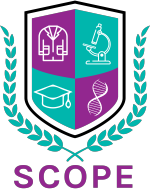
Navigating the healthcare industry without taking the NEET might seem daunting, but numerous avenues lead to lucrative and fulfilling careers. This article delves into ten high-paying medical professions that do not require a NEET score, providing a blend of hope and direction for aspiring healthcare professionals.
1. Medical Laboratory Technologist
Medical Laboratory Technologists are the unsung heroes behind the scenes, analyzing samples to aid in diagnosis and treatment. A Bachelor’s in Medical Laboratory Technology opens doors to this field, where technology and healthcare intersect, offering a stable and rewarding career.
2. Biomedical Engineer
Biomedical Engineers innovate at the crossroads of healthcare and engineering, developing medical devices that save lives. One can embark on this path with a Bachelor’s degree in Biomedical Engineering, contributing to groundbreaking healthcare solutions.
3. Clinical Research Coordinator
Clinical Research Coordinators ensure that clinical trials run smoothly and ethically. This role, accessible with a Bachelor’s in life sciences, is crucial for the development of new medicines and treatments, providing a unique blend of responsibility and scientific exploration.
4. Healthcare Consultant
Healthcare Consultants analyze and improve organizational efficiency within healthcare settings. A background in healthcare management equips individuals for this role, blending business acumen with a passion for healthcare.
5. Physical Therapist
Physical Therapists offer a hands-on approach to healing, assisting patients in regaining mobility and strength. This profession, requiring a degree in Physical Therapy, is as emotionally rewarding as it is financially viable, directly impacting patients’ lives.
6. Occupational Therapist
Occupational Therapists help patients master daily living and work skills, overcoming physical and cognitive challenges. A degree in Occupational Therapy is the key to this career, offering a profound sense of accomplishment through patient progress.
7. Speech-Language Pathologist
Speech-Language Pathologists address communication disorders, a critical need in various patient populations. A Master’s degree in Speech-Language Pathology is necessary, leading to a career that combines the science of language with compassionate care.
8. Radiologic Technologist
Radiologic Technologists capture images that are vital for diagnosis, such as X-rays. Pursuing a degree in Radiologic Technology prepares individuals for this essential role in patient care, combining technical skill with patient interaction.
9. Nutritionist/Dietitian
Nutritionists and Dietitians play a key role in health and wellness, advising on nutritional plans for health optimization and disease prevention. With a Bachelor’s degree in Nutrition or Dietetics, one can make a significant impact on public health.
10. Prosthetist and Orthotist
Prosthetists and Orthotists specialize in designing and fitting artificial limbs and orthopedic braces, helping patients regain mobility and improve their quality of life. A Bachelor’s degree in Prosthetics and Orthotics is required to enter this field, which offers a unique combination of technical skill, creativity, and patient care.
Conclusion
The healthcare sector is rich with opportunities that extend beyond the traditional path of becoming a doctor through NEET. These ten careers offer not only competitive salaries but also the chance to make a meaningful impact in people’s lives. With the right education and passion, each of these roles provides a fulfilling way to contribute to the health and well-being of society.
Yes, there are many medical careers that do not require NEET, such as Biomedical Engineering, Medical Laboratory Technologist, and Clinical Research Coordinator, among others.
To start a career in the medical field without NEET, research the different roles that align with your interests, then pursue the necessary education and training. Fields such as biomedical engineering, healthcare consulting, and various therapy disciplines offer robust career paths without the need for NEET.
Pursuing a medical career without NEET has several advantages, including a focus on specialized fields that may offer more direct patient care, innovative medical technology roles, or unique healthcare services. It also allows individuals to explore healthcare careers with potentially less competition and a different set of challenges and rewards than traditional medicine.
Exploring these alternative careers can open up a new world of possibilities for those interested in the medical field but looking to avoid the NEET examination. Each path offers a unique way to engage with healthcare, promising both personal satisfaction and professional growth.
